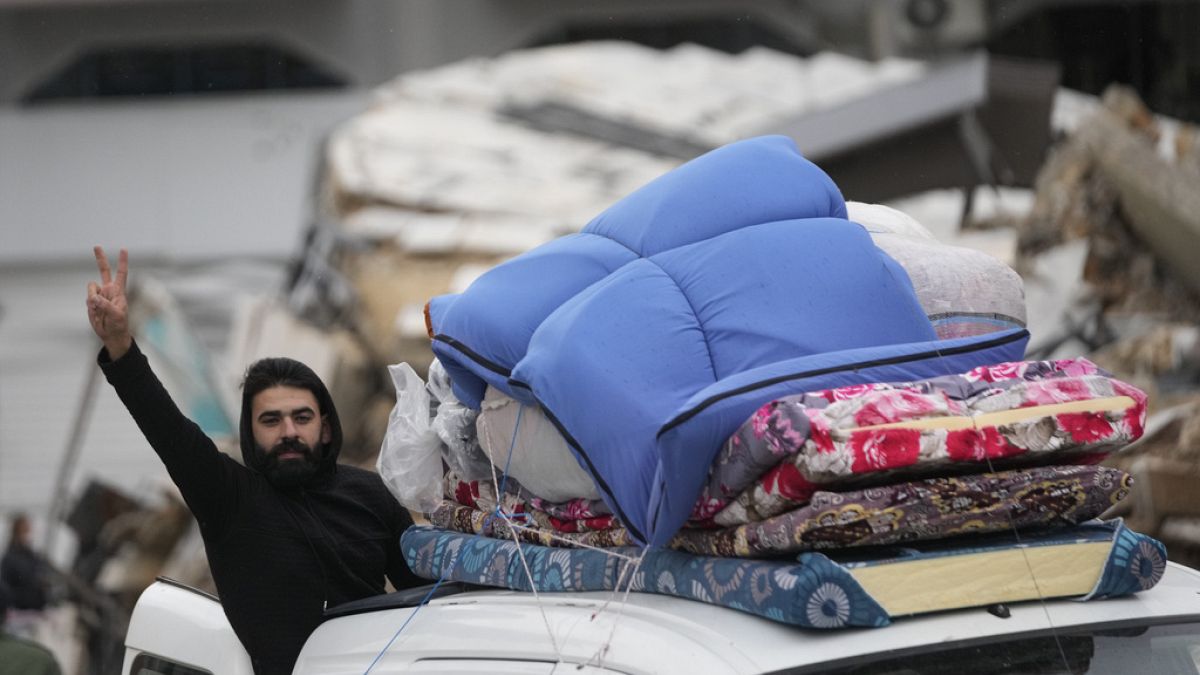Some Lebanese hospitals could be operational within weeks, officials said, but others will take months to repair.
As thousands of people who fled heavily bombed parts of Lebanon begin to return amid a tenuous peace deal with Israel, health workers are facing major challenges to restore services there, global health authorities have said.
Speaking to journalists on Thursday, Dr Tedros Adhanom Ghebreyesus, head of the World Health Organization (WHO), said Lebanon’s health needs are “huge” and “will only increase” in the coming months.
About 1.2 million people there were displaced by Israeli strikes and ground attacks that paused Wednesday morning (CET) after Israel and Lebanon agreed to a temporary ceasefire – though while many hoped it could signal the beginning of the end of the war, it’s not clear that peace will last after Israel accused Lebanese militant group Hezbollah of breaching the deal on Thursday.
Since October 2023, when the conflict escalated after Hezbollah launched rockets and missiles into Israel, there have been 158 attacks on healthcare facilities and personnel in Lebanon, killing 241 people and injuring nearly 300 others, according to a WHO database.
Eighty-two of those attacks, and 179 of the deaths, have occurred since September 23, when Israel increased heavy bombing across Lebanon, in particular targeting the Iran-backed Hezbollah in the south.
More than 3,760 people have been killed in Lebanon amid the conflict, according to health officials there, while more than 70 people in Israel have been killed.
Many health workers are among the displaced in Lebanon, WHO officials said on Thursday, complicating efforts to rebuild the health system in parts of the country hit hard by the attacks.
Assessing the extent of damage to Lebanon’s health system
Nabil Tabbal, a health information and risk assessment officer at the WHO, said nearly 10 per cent of hospitals have been damaged, and that the organisation is now working to get them operational for returning residents.
Working with the ministry of health and other partners, WHO workers are now assessing the extent of the damage to hospitals and primary health centres, with the goal of identifying which ones need the least renovation and new equipment to start accepting patients.
For example, it appears that four hospitals – two in the capital of Beirut and two nearby – can likely be re-opened in the next four weeks if the ceasefire holds, said Dr Abdinasir Abubakar, the WHO’s acting representative for Lebanon.
“Some of those hospitals, they have very extensive damage which cannot be repaired, which cannot be renovated, within 60 days or even six months,” he told journalists.
The “backup plan,” he added, is to bring more mobile clinics into the area to serve people who have been displaced by the war.
“We have a master plan for us to help all the hospitals and primary healthcare facilities and all the health services to restart in most of the conflict areas, but I’m sure to kickstart all the services 100 per cent, it will take some time,” he said.
“But definitely we do have a backup plan to at least provide critical health services” for displaced people returning home.
The officials also pressed for a permanent ceasefire that includes Gaza, where nearly 14 months of war have left more than 44,000 Palestinians dead.
They said the situation is becoming more dire as winter approaches, humanitarian missions are blocked, and supplies of fuel and medicines run low.
“The ultimate solution is not aid, but peace,” Tedros said.
Checkout latest world news below links :
World News || Latest News || U.S. News
The post WHO: Lebanon’s health needs are ‘huge’ amid Israel-Hezbollah ceasefire appeared first on WorldNewsEra.

